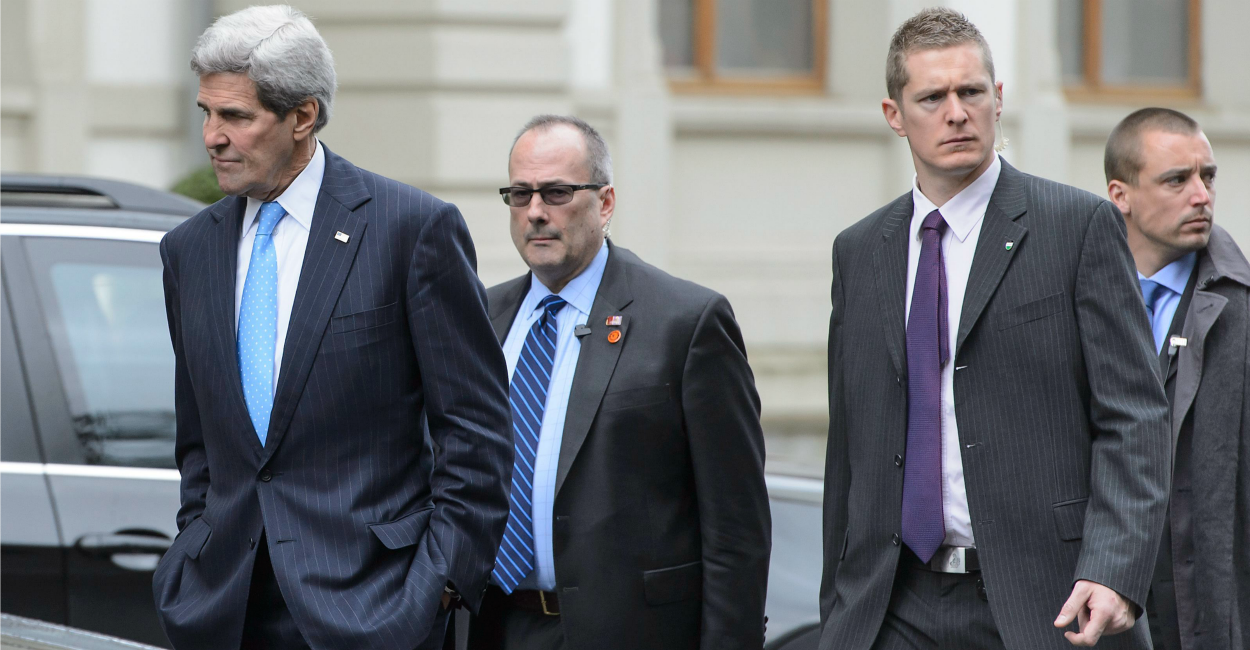How Will Middle East Chaos Impact the Iran Nuclear Talks?
Josh Siegel /
In a week’s time, a seemingly disconnected run of Middle East chaos has at least one commonality: Iranian influence.
A Saudi-led coalition of Sunni nations has launched attacks against Iranian-backed Shiite rebels in Yemen. The United States is supporting the Saudi attacks with intelligence and logistical help.
In Iraq, the United States and Iranian-supported militias have tangled over their simultaneous involvement in a key battle against ISIS terrorists for the city of Tikrit.
Meanwhile, Syrian President Bashar Assad—a close ally of Iran—continues to allegedly murder his own people in that country’s four-year-old civil war, as the United States stays on the sidelines.
In the shadows of these conflicts, the United States is pushing for a deal with Iran over its nuclear program, a bizarre—or normal—specter (depending on whom you talk to) that may or may not be impacted by all of the other developments.
“The Obama administration is faced with a big problem,” said Steve Bucci, a foreign and national security policy expert at The Heritage Foundation. “They are so determined to get a nuclear deal with Iran when at the same time they should be more concerned with the growing Iranian influence in the Middle East, which is complicated by wanting to stop ISIS. Which one of those end up winning? You can lose them all. Because they are all pulling in a different direction.”
Some experts, like Bucci, argue the recent developments in the Middle East—and the Sunni world’s amped up aggression against Iranian influence—should pressure the Obama administration to get tougher with Iran.
>>> What You Need to Know About Congress’ Debate on Iran Sanctions
With the United States and its negotiating allies facing a March 31 deadline to agree to the framework of nuclear deal with Iran, America’s Sunni Arab allies may be sending well-timed warning shots.
“The U.S. policy towards Iran is contradictory and hard to understand,” says @MaxAbrahms.
“Basically, the U.S. policy toward Iran is contradictory and hard to understand,” said Max Abrahms, a Northeastern University professor and terrorism analyst, in an interview with The Daily Signal. “We in no way have a coherent strategy.
“All of this is very relevant to the Iranian nuclear negotiations. The Sunni world is very alarmed by the spread of Iranian influence throughout the world. And there is a sense that the Obama administration, by agreeing to a nuclear deal, will pave the way for that country to develop a nuclear weapon. So the Sunni world is responding very strongly.”
>>> The Big Picture: Why Yemen Matters
But other experts say the nuclear talks with Iran should be carried out on its own terms and evaluated on its face—outside of the circulating Iranian-tinged chaos.
“The sheer complexity of all of these things going on and the number of directions they push and pull should suggest a simplicity,” said Michael O’Hanlon, director of research for the foreign policy program at Brookings Institution, in an interview with The Daily Signal.
“I think the simplest way to look at it is that these are different issues that can largely be handled by themselves. If you look at one of these situations too closely, you can read all of these little nuances and determine that Iran is signaling if we do a deal they will behave better or not. But Iran will make their decisions [in each situation] based on what their best interests are, and we should approach it that way to.
“It will be unrealistic to think any one of these things are going to improve,” O’Hanlon added. “Even if we manage to get some sort of deal, I don’t think they will start behaving better. Some think that they will start behaving slightly worse in the short term just to prove a point. Whether you like the Iran deal or not, you can view it on its own terms and not necessarily in a broader context.”
Though Middle East experts may be able to untangle each of these events—and understand their complexities—the Obama administration, if it seals a nuclear deal, will be tasked with selling the strategy to the American public.

U.S. Secretary of State John Kerry walks outside his hotel during a break after a bilateral meeting for a new round of nuclear talks on Iran, in Lausanne, Switzerland, March 29. (Photo: JEAN-CHRISTOPHE BOTT/EPA/Newscom)
O’Hanlon trusts that Americans are wise enough to judge the nuclear deal on what it is.
O’Hanlon, for his part, is “prepared to hold my nose and tolerate the deal” because it is better than any other short-term outcome.
“I think you should treat them [the American public] like grown ups,” O’Hanlon said. “You have to give the debate participants some credit, whatever side they’re on, that they are reaching their conclusions for fairly specific reasons that have to do with the details of negotiations: details such as verification measures, previous [International Atomic Energy Agency] access, Iran’s record of noncompliance, the sunset provision [when the deal expires], the question if we could reimpose sanctions if we needed to.
He acknowledged it was a hard debate.
“I don’t know if we need to make it harder by worrying about all these hypothetical linkages or about Iran’s bad boy image,” O’Hanlon added. “I don’t know how many American are going to react based on a blanket hate for Iran or fear of Iran.”
Abrahms, who opposes the nuclear talks, views the situation more simply.
“If we are confused, the American public is confused,” Abrahms said.
